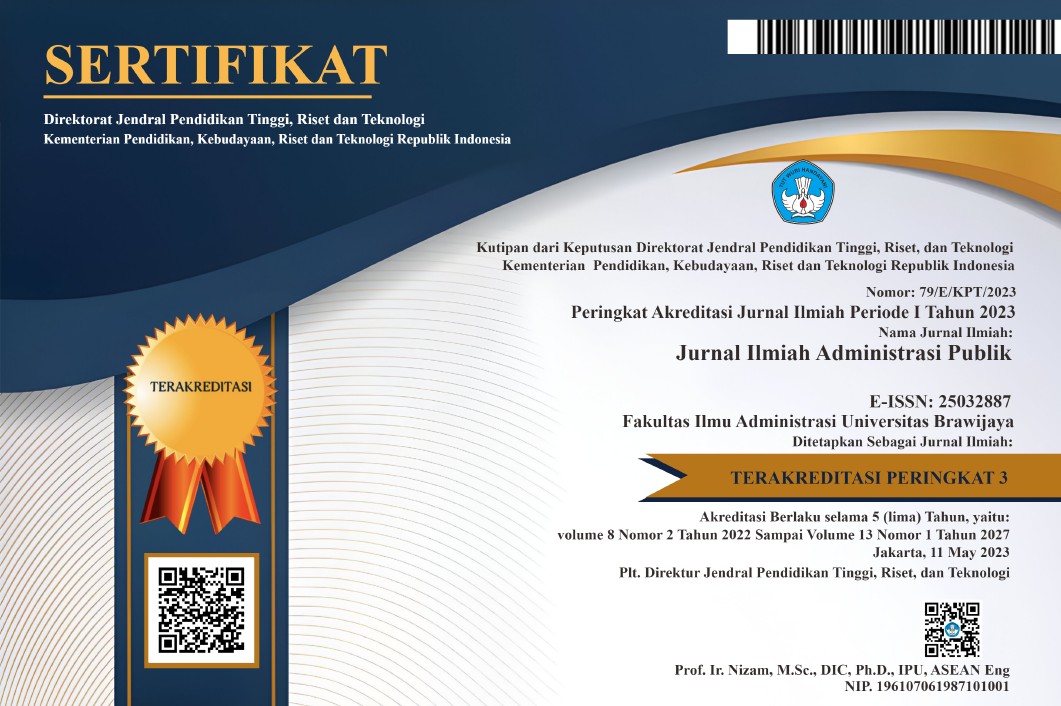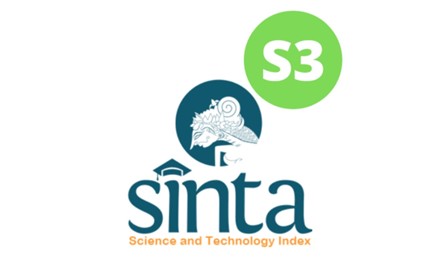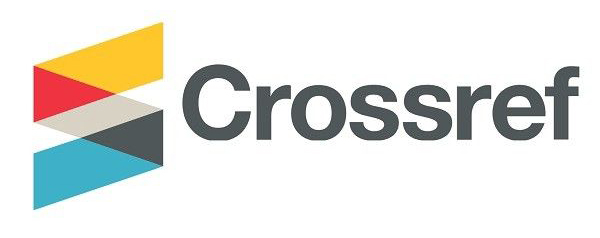Analisis Perbedaan Kebijakan Standar Perizinan Reklamasi Pada Wilayah Pelabuhan dan Selain Pelabuhan
DOI:
https://doi.org/10.21776/ub.jiap/2023.009.01.5Keywords:
coastal; reclamation; port; permitAbstract
Reclamation is a business activity that is categorized as a high-risk level. Currently, Indonesia has 2 (two) standards for implementing coastal reclamation that is set by the Ministry of Marine Affairs and Fisheries (KKP) and the Ministry of Transportation (Kemhub). KKP sets reclamation standards outside the port area based on Law Number 27 of 2007 (UU Number 27 of 2007) and the Ministry of Transportation determines reclamation standards in port areas based on Law Number 17 of 2008 (UU Number 17 of 2008). This study uses a qualitative method through a literature review to compare the two reclamation standards which can help simplify business permits according to Perppu Number 2 of 2022. Based on a comparison of the reclamation standards used by the KKP it can be applied to all area inside and outside the port because it regulates standards in more detail thereby reducing potential impacts of reclamation that may occur.
References
Ali, H., & Damgaard, J. (2013). Geotechnical Aspects of Coastal Reclamation Projects. Proceedings of the 7th International Conference on Asian and Pacific Coasts, 21(2013) (pp. 311-318). Bali: Universitas Hasanuddin.
AlQahtany, A. M., Dano, U. L., Abdalla, E. M., Mohammed, W. E., Abubakar, I. R., AlGehlani, W. A., . . . Alshammari, M. S. (2022). Land Reclamation in a Coastal Metropolis of Saudi Arabia:. Water 14(256), 1-17.
Creswell, J. W., & Creswell, J. D. (2018). Qualitative, Quantitative, and Mixed Methods Approaches. SAGE Publications, Inc.
Dewi, I. G., & Turisno, B. E. (2020). Sustainable coastal reclamation for community welfare in. Jurnal Perspektif Pembiayaan dan Pembangunan Daerah, 8(4), 369-376.
Dodds, A. (2013). Comparative Public Policy. Palgrave Macmillan.
Gultom, I. (2022, Maret 28). Kolom Opini. Retrieved from Direktorat Jasa Kelautan: https://kkp.go.id/djprl/jaskel/artikel/39158-tanah-di-atas-air-menghitung-nilai-ekonomi-reklamasi
Hamdi, M. (2014). Kebijakan Publik : Proses Analisis dan Partisipasi. Ghalia Indonesia.
KKP. (2019). Reklamasi di Indonesia. Retrieved from Kementerian Kelautan dan Perikanan: https://kkp.go.id/an-component/media/upload-gambar-pendukung/DitJaskel/publikasi%20materi/Publikasi_1/BUKU%20REKLAMASI%20INDONESIA.pdf
Kraft, M. E., & Furlong, S. R. (2018). Public Policy Politics, Analysis, and Alternatives Sixth Edition. CQ Press.
Merriam, S. B., & Tisdell, E. J. (2016). Qualitative Research A Guide to Design and Implementation. John Wiley & Sons, Inc.
Nadzira, N. M., Ibrahima, M., & Mansorb, M. (2014). Impacts of Coastal Reclamation to the Quality of Life. Procedia - Social and Behavioral Sciences 153 (2014) , 159-168.
Novelita, F. D., Widyastuti, D. I., & Buana, C. (2020). Perencanaan Reklamasi Serta Detail Breakwater pada Tersus Galangan Kapal Paciran, Kabupaten Lamongan. Jurnal Teknis ITS, 9(1), D1-D4.
Sachpazis, C. (2011). Soil liquefaction potential assessment of a coastal foundation ground and its suitability for a CCGT Power Plant construction in Greece. European Journal of Government and Economics, 16 (2011), 679-707.
Sun, Q., Jiang, L., Jiang, M., Lin, H., Ma, P., & Wang, H. (2018). Monitoring Coastal Reclamation Subsidence in Hong Kong with Distributed Scatterer Interferometry. Remote Sens 10(1738), 1-25.
Wong, W. (2016). Comparative Public Policy. In: Farazmand, A. (eds) Global Encyclopedia of Public Administration, Public Policy, and Governance. Springer Cham.
Yin, R. K. (2016). Qualitative Research from Start to Finish. The Guilford Press.
Zhang, L., Wang, P., Lin, X., Yan, J., Zhang, P., & Zhao, B. (2020). Impact of Large-Scale Reclamation on Resources and Environment in West Liaodong Bay and Remediation and Restoration Suggestions—A Case Study of Xingcheng Coastal Industrial Area. IOP Conf. Series: Earth and Environmental Science, 555(2020), 1-7.
Downloads
Published
Issue
Section
License
Copyright (c) 2023 Jurnal Ilmiah Administrasi Publik

This work is licensed under a Creative Commons Attribution-NonCommercial 4.0 International License.
If your paper is accepted, the author identified as the formal corresponding author for the paper will receive an email prompting them to login into Author Services; where via the JIAP Author Licensing Service they will be able to complete the license agreement on behalf of all authors on the paper.














